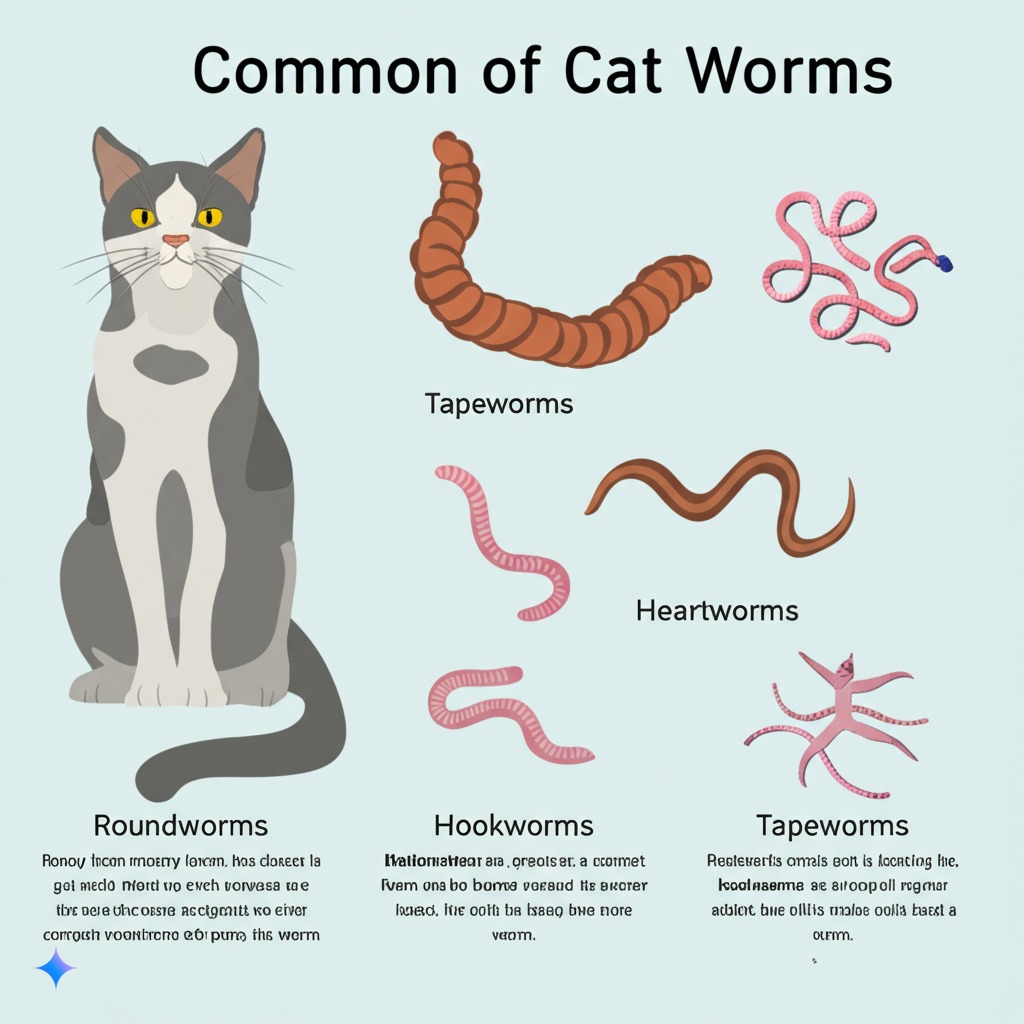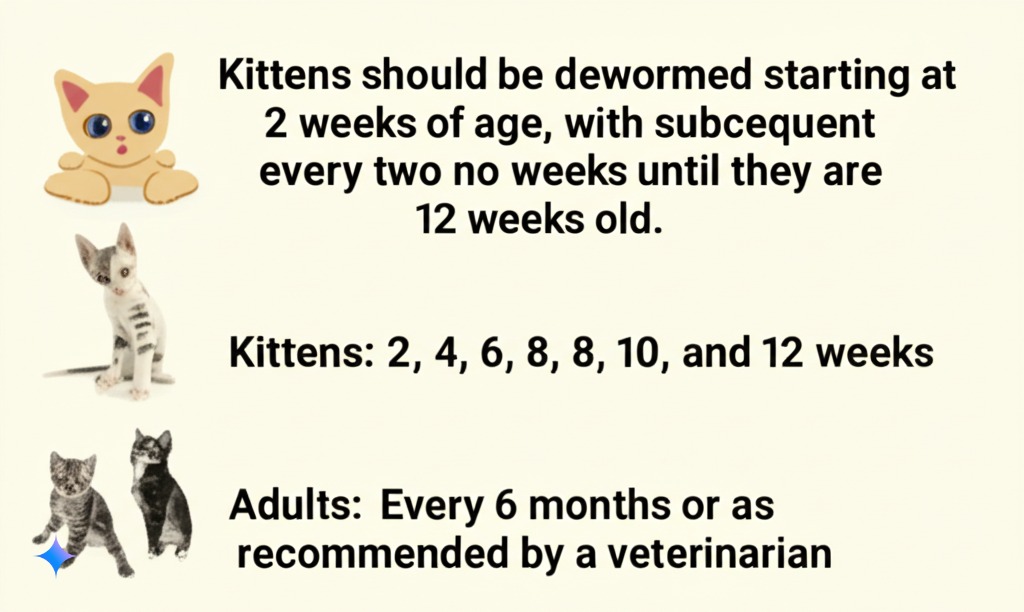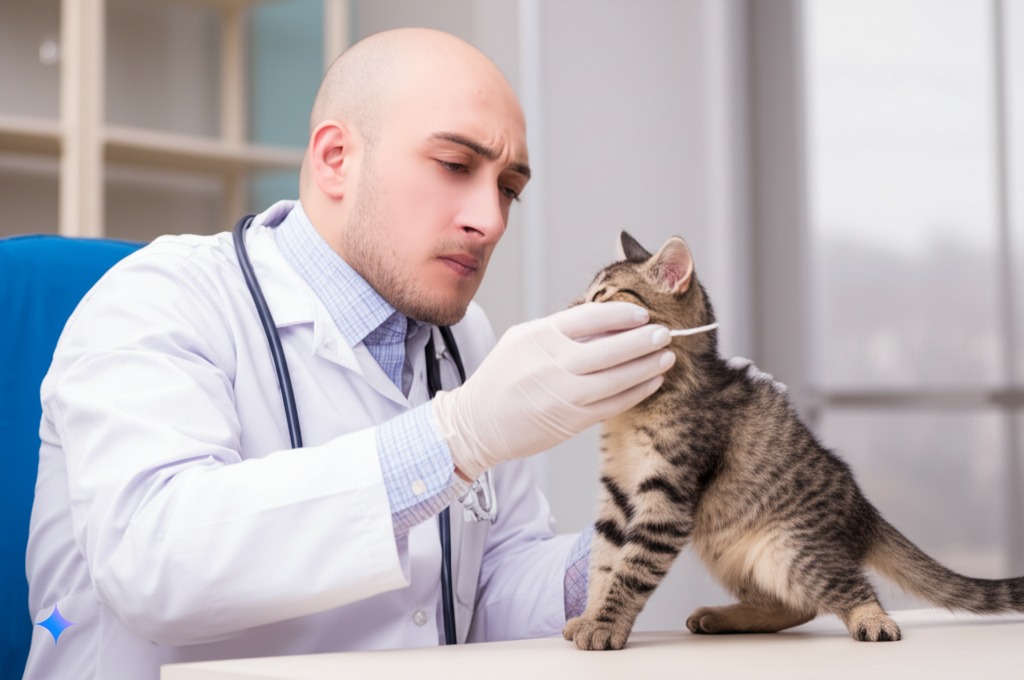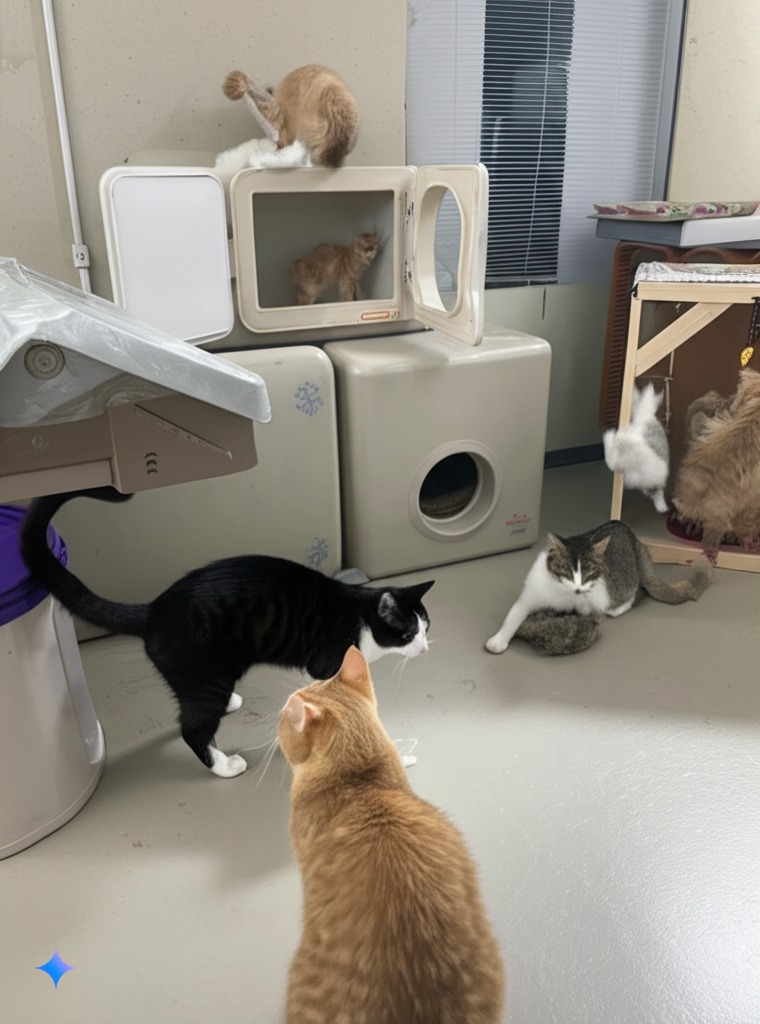Deworming your cat is a crucial aspect of pet care that every cat owner should prioritize. Whether you’re a new cat parent or a seasoned owner, understanding the ins and outs of cat deworming can make a significant difference in your feline friend’s health. This guide aims to provide you with comprehensive, easy-to-follow instructions on how to effectively deworm your cat, illustrated for clarity and engagement.
Introduction
Have you ever noticed your cat acting strangely? Perhaps they’re vomiting more than usual or losing weight despite eating well. These could be signs of a parasitic infection. Deworming is not just a routine; it’s a necessity for your cat’s health. In this guide, we will explore the why, when, and how of cat deworming, ensuring you have all the information you need to keep your furry friend healthy.

Understanding Cat Deworming
What is Deworming?
Deworming refers to the process of eliminating parasitic worms from your cat’s body. Common types of worms include roundworms, hookworms, and tapeworms. These parasites can lead to serious health issues if left untreated. Did you know that up to 45% of cats can be infected with intestinal parasites? Regular deworming helps prevent these issues and keeps your cat healthy.

Why is Deworming Necessary?
Parasites can cause a range of health problems, from mild discomfort to severe illness. Here are some reasons why deworming is essential:
- Health Risks: Worms can lead to malnutrition, anemia, and even death in severe cases.
- Transmission: Some worms can be transmitted to humans, especially children, posing a health risk to your family.
- Quality of Life: A worm-infested cat may exhibit lethargy, poor coat condition, and behavioral changes.
Symptoms of Worm Infestation
How can you tell if your cat needs deworming? Here are some common symptoms to look out for:
- Vomiting: Frequent vomiting can indicate a worm infestation.
- Diarrhea: Loose stools, especially with blood or mucus, are a red flag.
- Weight Loss: If your cat is losing weight despite a good appetite, it might be due to worms.
- Distended Abdomen: A swollen belly can be a sign of severe worm infestation.
- Change in Appetite: Increased or decreased appetite can indicate health issues.

When to Deworm Your Cat
Deworming Schedule
Kittens should be dewormed starting at 2 weeks of age, with subsequent treatments every two weeks until they are 12 weeks old. Adult cats should be dewormed at least twice a year, but this can vary based on lifestyle and risk factors.
- Kittens: 2, 4, 6, 8, 10, and 12 weeks
- Adults: Every 6 months or as recommended by a veterinarian

Seasonal Considerations
Certain seasons can increase the risk of parasite infections. For example, warmer months often see a rise in fleas, which can lead to tapeworms. Are you aware of how the seasons affect your cat’s health? Adjust your deworming schedule accordingly, especially if your cat spends time outdoors.
- Spring/Summer: Increased flea activity, leading to potential tapeworms.
- Fall/Winter: Indoor cats may have a lower risk, but regular checks are still essential.
Methods of Deworming
Pharmaceutical Dewormers
There are various over-the-counter and prescription dewormers available. Here are some common types:
- Pyrantel Pamoate: Effective against roundworms and hookworms. Typically given as a single dose.
- Praziquantel: Targets tapeworms specifically. It can be given as a single dose or in multiple doses.
- Fenbendazole: Broad-spectrum dewormer effective against multiple types of worms. Usually administered over several days.
Natural Remedies
While pharmaceutical options are the most effective, some natural remedies may help prevent worm infestations. These include:
- Pumpkin Seeds: Contain compounds that can help expel worms. Grind them and mix them into your cat’s food.
- Carrots: Can help scrape worms from the intestinal walls. Offer small, cooked pieces as a treat.
- Diatomaceous Earth: Food-grade diatomaceous earth can be sprinkled on food to help eliminate worms.

Administering Dewormers
How to Safely Administer Deworming Medication
- Read the Instructions: Always follow the dosage guidelines on the packaging. Consult your veterinarian if unsure.
- Mix with Food: If your cat resists taking the medication, try mixing it with their favorite food. Use a small amount to ensure they consume the entire dose.
- Use a Syringe: For liquid medications, use a syringe to administer the dose directly into your cat’s mouth. Be gentle and ensure the cat is calm.
- Monitor Your Cat: After administering the medication, watch for any adverse reactions such as vomiting or lethargy.
Post-Deworming Care
Observing Your Cat After Deworming
After deworming, monitor your cat for any side effects, such as:
- Lethargy: If your cat seems unusually tired or inactive.
- Diarrhea: Mild diarrhea can occur but should resolve within a day or two.
- Vomiting: Occasional vomiting can happen, but persistent vomiting requires veterinary attention.
If symptoms persist or worsen, consult your veterinarian immediately.

Preventive Measures
Keeping Your Cat Worm-Free
Prevention is always better than cure. Here are some tips to keep your cat free from worms:
- Regular Vet Check-ups: Schedule routine visits to catch any issues early. Your vet can recommend a deworming schedule tailored to your cat’s needs.
- Maintain Cleanliness: Keep your cat’s litter box clean and dispose of waste promptly. Regularly wash bedding and toys to reduce parasite exposure.
- Limit Outdoor Access: If possible, limit your cat’s exposure to areas where they might encounter parasites. Consider keeping them indoors, especially during peak parasite seasons.
- Flea Control: Implement a flea control program, as fleas can transmit tapeworms.

Conclusion
Deworming your cat is a crucial part of responsible pet ownership. By following this comprehensive guide, you can ensure your cat remains healthy and happy. Remember, a healthy cat is a happy cat! Regular deworming, combined with preventive measures, will keep your feline friend safe from harmful parasites.
Frequently Asked Questions (FAQ)
- How often should I deworm my cat?
- Kittens should be dewormed every two weeks until they are 12 weeks old, while adult cats should be dewormed at least twice a year.
- What are the signs that my cat needs deworming?
- Look for symptoms like vomiting, diarrhea, weight loss, and a distended abdomen.
- Are there natural remedies for deworming?
- Yes, pumpkin seeds and carrots can help as natural preventative measures.
- Can I use human dewormers on my cat?
- No, always use dewormers specifically formulated for cats, as human medications can be toxic to them.
- What should I do if my cat has worms?
- Consult your veterinarian for appropriate treatment options and follow their recommendations.
By keeping this guide in mind, you can confidently manage your cat’s health and well-being. Remember, your cat relies on you for their care—make it count!